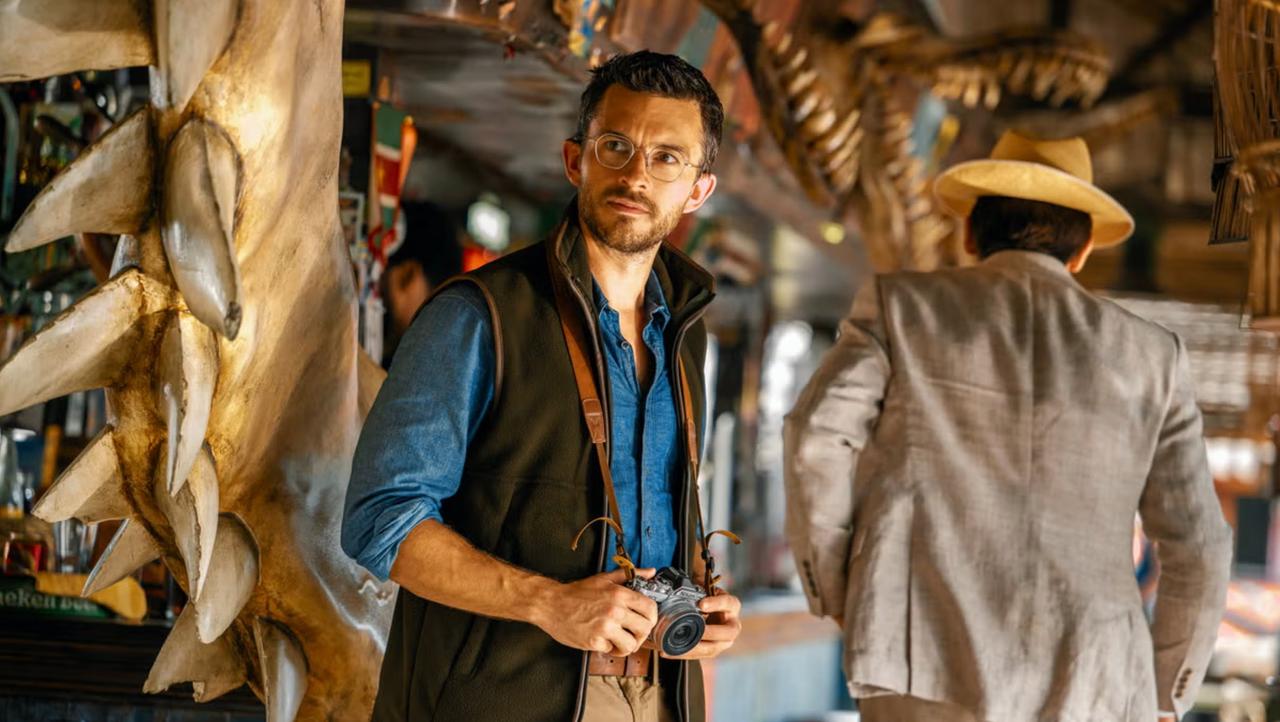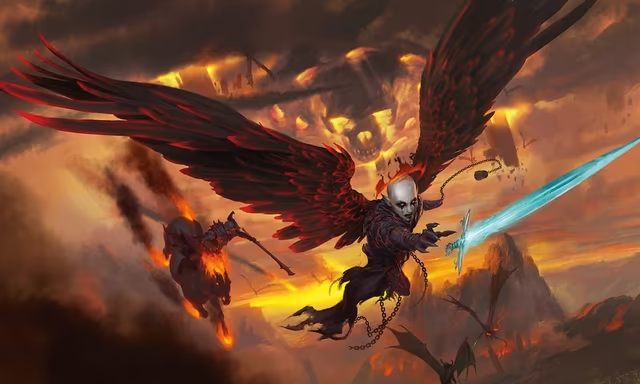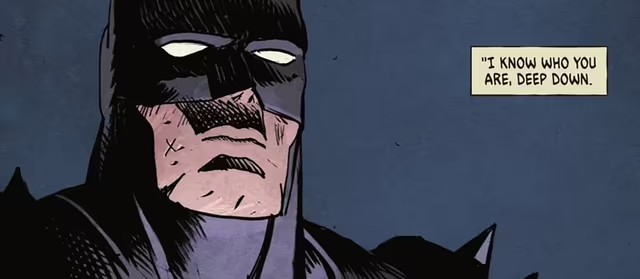If you click on a link and make a purchase we may receive a small commission. Read our editorial policy.
The attempt by Jurassic World Rebirth to emulate the first Jurassic Park movie is about as real as those 'de-extinct' dire wolves
Jurassic World Rebirth's collaboration with Colossal Biosciences undermines the bioethics discourse from the original Jurassic Park film

Popverse's top stories
- Where to find Popverse at Seattle's Emerald City Comic Con 2026
- The Traitors US alum Bob the Drag Queen drops a piece of advice for future players: "You are not as good at this game as you think you are"
- Bridgerton season 4 ending explained - did Benedict and Sophie make it work, and who's leaving the show for good?
The first Jurassic Park movie made me the person I am today. When it's hot and sunny outside, I wrap a bandana around my neck, throw a broad-brimmed hat on my head, and roll up my sleeves just like Sam Neill's Dr. Alan Grant. I stomp around in heavy boots in the Los Angeles mountains, wishing I had a velociraptor claw in my pocket. Worried that my love and reverence for Steven Spielberg's 1993 film would one day make me look like one of those middle-aged dudes who takes Ghostbusters a little too seriously, I sat down and seriously examined why a film from my childhood still means so much to me as an adult. I then realized that the first Jurassic Park was at the intersection of various fields that I'm passionate about: film, wildlife, conservation, biology, paleontology, bioethics, Sam Neill. The film isn't just entertaining, it has intellectually fed me my whole life, inspiring a lifelong sense of curiosity for the outdoors.
Now, Gareth Edwards's Jurassic World Rebirth film is intended to bring the Jurassic World franchise back to the roots of Steven Spielberg's first Jurassic Park film. Okay. I like Edwards a lot as a director, thanks to his work on the stellar 2014 Godzilla film. With David Koepp writing the screenplay, I had high hopes for Rebirth. Since the notion of scientific truth and reasoning has been under attack these last few years, there's never been a more urgent time for a blockbuster film to center the expertise of scientists, to honor the current state of paleontology. And then I saw that the Jurassic World YouTube channel had posted a 'Colossal Discussion' video, featuring a conversation between Edwards and the co-founder and CEO of Colossal Biosciences, Ben Lamm.
In case Colossal Biosciences doesn't ring a bell for you, they're the private company that announced to the world earlier this year that they've mastered "de-extinction" by "bringing back dire wolves." In reality, they didn't (as the experts at the La Brea Tar Pits Museum can tell you). All they did was genetically modify grey wolves - a species protected under the Endangered Species Act - to "look" like dire wolves. In the video posted to the Jurassic World YouTube channel, Colossal CEO Ben Lamm proudly touts all the good that his company can bring to conservation efforts for endangered species, while also offering tantalizing details of a near future where they've "brought back" extinct species like wooly mammoths. It's not lost on him the similarities he shares with John Hammond from Spielberg's film.
Jurassic World Rebirth's collaboration with Colossal Biosciences betrays the core elements of the first Jurassic Park

Ordinarily, I wouldn't spend this much time or energy on what the CEO of a private company says, or how a Hollywood film markets itself. However, within the context of what Jurassic World Rebirth has sought out to achieve, the video felt like a slap in the face to the ideals and themes behind Spielberg's movie. Before we can finish screaming, "DID YOU EVEN WATCH THE ORIGINAL MOVIE?" at our little screens, the video throws in a clip of Jeff Goldblum's iconic "Your scientists were so preoccupied with whether or not they could, they didn't stop to think if they should" line. It feigns an understanding of the themes behind Jurassic Park to get us on board with this.
To be clear, I'm not opposed to conservationists using every tool at their disposal to fight mass extinction, but there are some serious reservations we should be having about Colossal Biosciences, along with Jurassic World's endorsement of the company. Live Science provides an excellent breakdown (seriously, you should just read up on what actual scientists have to say about this, I got a B+ in my undergrad Organismal Biology lab), but to summarize it briefly, Colossal's work muddies the waters for what it means to be a species. The definition of a species is important for protections to be granted under the Endangered Species Act. The Live Science article notes that "Colossal has filed patents that, if accepted as written by the Patent and Trademark Office, would legitimize their definition of de-extinction as a single gene from an extinct species introduced into an extant one." Think about it: a single gene from an extinct species. That presents ample opportunity for species to become watered down and commodified. Sam Neill's Alan Grant would be raging.
Jurassic World Rebirth should have spotlit the work of actual scientists, not private companies

One of the many great things about the first Jurassic Park film is that it showed the tensions between scientists and capitalists. It portrays how seeking novelty for monetary benefit by playing with the building blocks of life - DNA - is like a kid wielding his dad's gun. And it points out how "de-extinction" through genetic modification ignores the reality of why so many species are being driven into extinction today: human activity. Sure, print out all the tiger clones you want, but if we don't protect the lands that they're supposed to live on in the wild, then what good does it even do? Have we forgotten that life evolves on this planet in concert with its ecosystems? A tiger isn't a tiger without the environment it was evolved to live and thrive in. To see Jurassic World abandon all understanding of this idea while promoting Rebirth is distressing.
I think what angers me most about Jurassic World Rebirth's endorsement of Colossal's work is that the film is coming out at a time when public lands, a lifeline for conserving endangered species, are at risk of being privatized by our federal government. In other words, Colossal's work isn't harmless. Case in point, Trump's Secretary of the Interior Doug Burgum has stated that Colossal's dire wolves "fundamentally change how we think about species conservation," and that "the marvel of de-extinction technology can help forge a future where populations are never at risk." Because of Colossal's work with "dire wolves," the Trump administration is removing protections for several endangered species. Genetically modifying our way out of being responsible for the consequences of our actions is simply not it.
I was naive for ever thinking that Edwards's Jurassic World Rebirth could revive the spirit of Jurassic Park. Before the film has even come out, Universal has made it clear that Jurassic World stands with private companies and their investors instead of actual scientists who have solutions for the existential problems facing our planet. Jurassic World will never be Jurassic Park, and it's a damn shame.
But as much as the assault on our planet fills me with despair, I find hope in knowing that Spielberg's original film has inspired an entire generation of scientists and allies to protect their planet. I think we can all agree that Jurassic Park (1993) is the best Jurassic film, and it's time we listen to what the film has to say about us and our planet before it's too late.
Want to know what's coming up next in pop culture? Check out Popverse's guides to:
Follow Popverse for upcoming event coverage and news
Find out how we conduct our review by reading our review policy
Let Popverse be your tour guide through the wilderness of pop culture
Sign in and let us help you find your new favorite thing.
















Comments
Want to join the discussion? Please activate your account first.
Visit Reedpop ID if you need to resend the confirmation email.